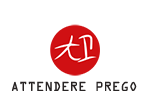Unlocking the Power of Intuition
Is it right to rush time?
The Taoist principle of not skipping steps and taking the right steps at the right time offers a valuable perspective for understanding the importance of a gradual and conscious approach in our lives. In Taoism, the concept of flowing with the natural stream of the universe is emphasized, embracing the principle of Wu Wei, which means “action without action.” This principle suggests that we often achieve the best results when we move in harmony with the nature of things, without forcing or rushing the processes.
In the practice of martial arts, for example, the application of Taoist principles can lead to greater awareness of the body and mind. Contrary to a competitive or aggressive mindset, the Taoist practitioner seeks to act in a fluid, harmonious, and intuitive manner, adapting to circumstances naturally. This requires constant dedication to practice and a profound understanding of martial principles, without seeking shortcuts or immediate results.
In Taoism, the aspect of “not skipping steps” is connected to the notion of “spontaneous nature.” The idea is that when we follow the natural flow of things without seeking to overly control or manipulate events, we are able to move with greater grace and effectiveness. In the context of martial arts, this translates into a practice that develops gradually over time, without seeking immediate perfection, but rather embracing the process of learning and growth.
Taoist philosophy invites us to reflect on the value of time and patience in our lives. Approaching each step of our journey with awareness and dedication allows us to develop a deeper understanding of ourselves and the world around us. This applies not only to martial arts but also to other areas of life, such as learning, personal growth, and interpersonal relationships.
To ignite intuition and reduce excessive reliance on rational thinking, Taoist thought offers valuable teachings. According to Taoism, the power of intuition comes from harmonizing with the natural flow of the Tao, the universal principle that governs all things. Here are some tips for cultivating intuition and achieving a balance between rational mind and intuition:
Practice relaxation: Find moments in your day to deeply relax. Relaxation allows the mind to loosen its grip on rational control and open up to intuitive wisdom.
Cultivate mental presence: Be aware of the present moment, letting go of past worries and future expectations. Focus on your physical sensations, emotions, and current thoughts. Intuition often manifests when the mind is calm and present.
Listen to the body: Take time to listen to your body. The body is a vehicle of intuitive wisdom. Observe physical sensations, tensions, or signals of discomfort. Learn to trust bodily sensations that indicate what is right for you.
Tune in with nature: Spend time outdoors, immersing yourself in the beauty and harmony of nature. Observe how nature flows effortlessly and adapts to changes. Tune in with this natural flow to stimulate the intuitive connection with the world around you.
Meditation: Meditation is a powerful practice for calming the rational mind and allowing intuition to emerge. Experiment with different meditation techniques, such as mindfulness meditation or heart-centered meditation. These practices will help you develop greater awareness and deeper access to your intuition.
It is important to note that the use of rational mind is still valuable in our daily lives, but learning to balance it with intuition can lead to a more comprehensive view and a deeper integration of experiences. Intuition allows us to grasp the subtle meaning of situations, make wise decisions, and connect with the harmonious flow of the Tao.
M. Davide De Santis

